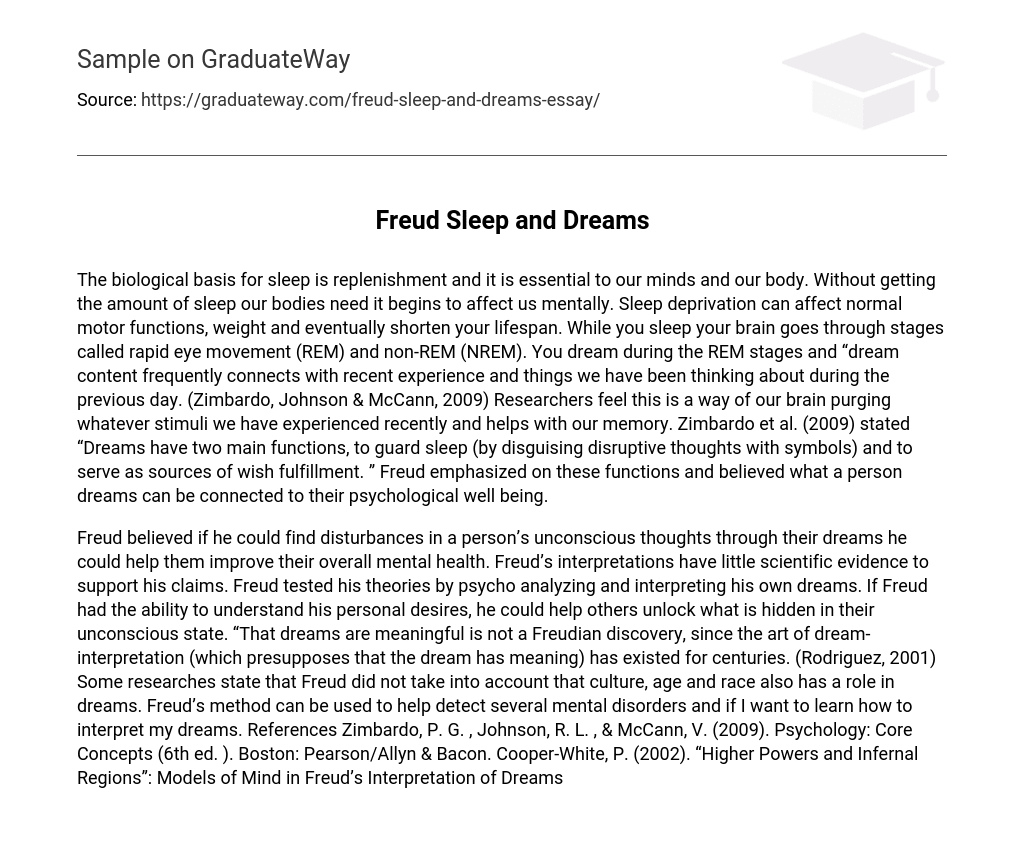The biological basis for sleep is replenishment and it is essential to our minds and our body. Without getting the amount of sleep our bodies need it begins to affect us mentally. Sleep deprivation can affect normal motor functions, weight and eventually shorten your lifespan. While you sleep your brain goes through stages called rapid eye movement (REM) and non-REM (NREM). You dream during the REM stages and “dream content frequently connects with recent experience and things we have been thinking about during the previous day. (Zimbardo, Johnson & McCann, 2009) Researchers feel this is a way of our brain purging whatever stimuli we have experienced recently and helps with our memory. Zimbardo et al. (2009) stated “Dreams have two main functions, to guard sleep (by disguising disruptive thoughts with symbols) and to serve as sources of wish fulfillment. ” Freud emphasized on these functions and believed what a person dreams can be connected to their psychological well being.
Freud believed if he could find disturbances in a person’s unconscious thoughts through their dreams he could help them improve their overall mental health. Freud’s interpretations have little scientific evidence to support his claims. Freud tested his theories by psycho analyzing and interpreting his own dreams. If Freud had the ability to understand his personal desires, he could help others unlock what is hidden in their unconscious state. “That dreams are meaningful is not a Freudian discovery, since the art of dream-interpretation (which presupposes that the dream has meaning) has existed for centuries. (Rodriguez, 2001) Some researches state that Freud did not take into account that culture, age and race also has a role in dreams. Freud’s method can be used to help detect several mental disorders and if I want to learn how to interpret my dreams. References Zimbardo, P. G. , Johnson, R. L. , & McCann, V. (2009). Psychology: Core Concepts (6th ed. ). Boston: Pearson/Allyn & Bacon. Cooper-White, P. (2002). “Higher Powers and Infernal Regions”: Models of Mind in Freud’s Interpretation of Dreams





